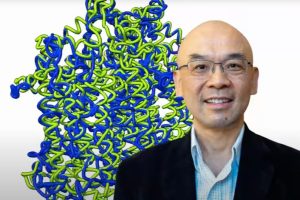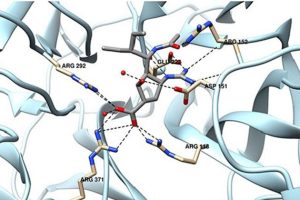
Sep. 23, 2024
Paving the way for new treatments
Mizzou researcher Jianlin “Jack” Cheng debuts tool to build 3D structure of protein complexes, giving scientists insights to prevent and treat disease.

March 6, 2023
Mizzou Engineer lends protein prediction expertise to climate change studies at Danforth Plant Science Center
An inter-institutional research team is using the power of computational analysis to pinpoint which plant genes confer resilience against rising temperatures that threaten global food supplies in the coming decades. Mizzou Engineering Professor Jianlin “Jack” Cheng — one of the first scientists in the world to use deep learning, a powerful artificial intelligence technique, to predict protein structures — adds a unique perspective to the work. Since 2018, he’s been collaborating with Dr. Ru Zhang, a plant scientist at the Danforth Plant Science Center in St. Louis, to leverage computational tools in the study of plant genes.

May 5, 2022
Using AI to analyze large amounts of biological data
Researchers at the University of Missouri are applying a form of artificial intelligence (AI) — previously used to analyze how National Basketball Association (NBA) players move their bodies — to now help scientists develop new drug therapies for medical treatments targeting cancers and other diseases.

Feb. 4, 2022
Engineer proposes deep learning system to speed drug development
A Mizzou Engineer has proposed a new deep learning system that would speed up drug development by more accurately predicting how drugs and proteins interact.